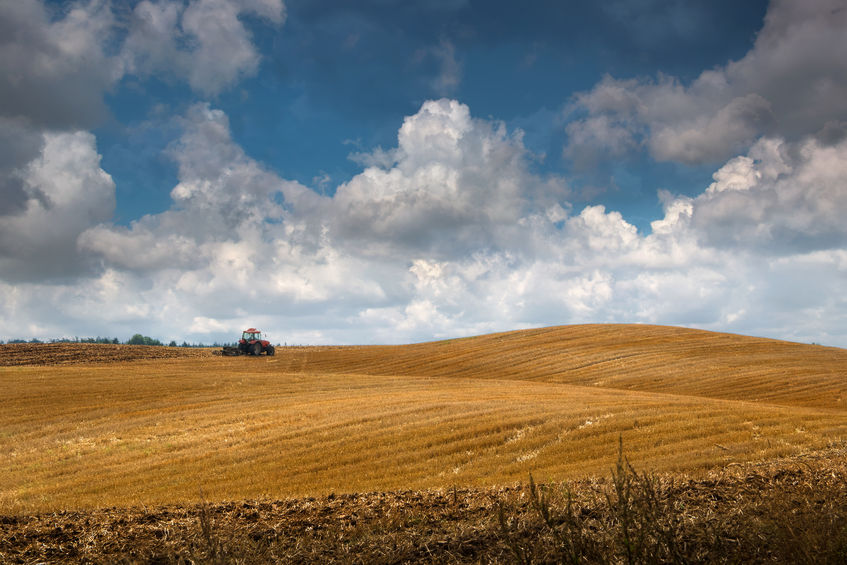
"Grossly unfair" farm subsidies should be replaced with a new system which allows all farmers the safety net of a basic income, a land and environment expert has told the government.
Professor Ian Bateman, Director of the University of Exeter's Land, Environment, Economics and Policy Institute (LEEP) has set out a new vision for a "harmonisation" of environmental and agricultural policy following Brexit.
In a speech to the the Conservative Party conference in Manchester, Professor Bateman called for the scrapping of current agricultural policy.
He said the CAP has overseen long-term decline in the natural environment, poor value for money to tax payers and a bad deal for the large majority of farmers.
Arguing that any improvement had to involve a new relationship between farmers and society that was good for both sides, Professor Bateman opened the session by highlighting that subsidies are currently distributed according to farm size.
This has resulted in three quarters of funding going to the biggest one quarter of farms, with billionaire landowners being among the largest recipients of public funding.
Wealthy landowners
Indeed, campaigners have already called for landowners, which includes the the Queen, to lose up to £1 million a year under plans to slash farming subsidies for wealthier farmers after Britain leaves the European Union.
One Labour MP said it was "indefensible" that wealthy land-owning families are given so much money in subsidies, and another campaigner said it was a "no-brainer" to change the system after the UK leaves the EU.
Farm minister George Eustice has also in the past said the distribution of payments was 'unfair'.
Professor Bateman said it supports intensive high-input/high-output farming so that society pays twice for food production, once through taxes and again via the shopping basket.
In contrast, Bateman said that many small and average sized farms receive relatively little public support despite being vital contributors to environmental quality.
He said: “Society doesn’t benefit from small farmers being pushed into bankruptcy.
“So the gross inequality of the present system should be replaced in part with the fairer distribution of a basic income safety net across farms.
“This will also retain land for any possible future food security contingencies without wasting money now by subsidising overproduction and damaging the environment.”
Public benefits
Beyond this safety net, Professor Bateman urged that public funding should only pay for activities which have public benefits.
These benefits include supporting rural development, maintaining high standards of animal welfare, protecting the biosecurity of the country, protection from flooding and the development and application of low-impact farm technology.
However, Bateman said that the majority of public funding should be targeted towards improving the country’s environment and the “natural capital” it provides, underpinning the economy and social well-being as well as providing a high-quality environment for all.
New methods of calculating the value of improving natural capital are available to help decision makers target public funding to those areas and uses which will deliver the best for society.
It is now possible to measure the contribution of landowners, farmers and farm managers to the environment, for example by calculating how much they reduce water pollution.
